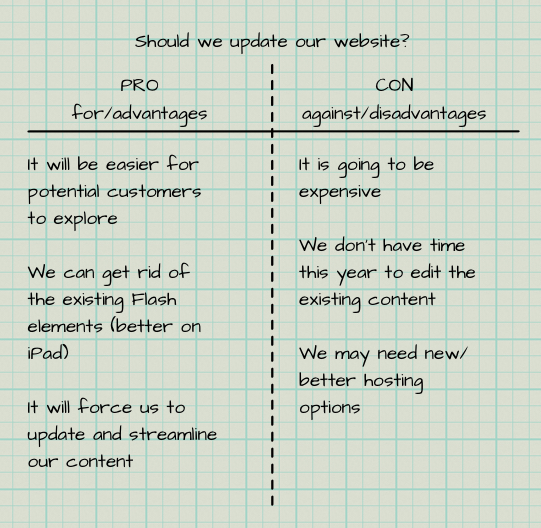

- Big business definition pros and cons how to#
- Big business definition pros and cons full#
- Big business definition pros and cons software#
- Big business definition pros and cons trial#
- Big business definition pros and cons professional#
Keep it professional and transparent.ĭon’t exaggerate your experience or skills, and definitely don’t leave out information investors need to know. Include a brief history of your business, the concept, and the products or services. Here are a few key pointers for writing a business plan:Īre you looking to secure a bank loan, get funding from private investors, or to lure skilled professionals to join you? Who are you trying to attract with it, and why? The most important step in writing a business plan is to identify its purpose. Writing a business plan is a great way to look at a concept from all angles and spot any potential pitfalls. In situations when the market is new and untested - or simply volatile - it can be very helpful to have a business plan to refer back to when the road ahead isn’t clear.įor those who have an exciting business idea but haven’t necessarily distilled it down into black-and-white. That said, there are definitely a few situations in which writing a plan makes sense and can help increase the chances of a business becoming successful:įor tech startups with no trading history, such as SaaS companies, a business plan can be an invaluable tool for securing long-term funding. So if you’re asking whether your company needs a lengthy business plan, the answer would be ‘no’.
Big business definition pros and cons trial#
Some companies organically develop out of trial and error, while others are plotted out from start to finish.
Big business definition pros and cons full#
While it’s still too soon to know the full impact full data democratization across all enterprises, there’s still widespread hope that it will revolutionize our business decision-making by allowing employees at all levels to gain access to and insights from the data their organizations collect.Starting a business isn’t an exact science. Expect that data democratization is an evolution where each individual small win when non-technical users gain insight because of accessing the data adds up to ultimately prove the merits of data democratization.
Big business definition pros and cons how to#
Everyone in the organization should be properly training on how to best use the data to drive company initiatives and progress.


We can now have a machine look at data and explain it to non-technical users.Īny organization who democratizes data needs to have strong governance in place to ensure the data is carefully managed.

Self-service BI applications: These applications make it easier for non-technical users to interpret data analysis. Database management security features encrypt or mask data to heighten security.
Big business definition pros and cons software#
This helps avoid the issue of needing to clean up inconsistencies in data or different file formats.ĭata federation software: This software uses metadata to aggregate data from a variety of sources into a virtual database.Ĭloud storage: One of the ways organizations are avoiding the data silos that prevented data democratization in the past is by using cloud storage as a central location to store data. Here are just a few examples:ĭata virtualization software: Data virtualization software retrieves and manipulates data without knowing the technical details about it. Additionally, there have been tech innovations that help make sense of the data for non-technical people. One of the reasons data democratization is now more attractive is because of the incredible amount of data that is created, which we often refer to as big data. Tech innovation that propels data democratization Another concern about data democratization is a duplication of effort across different teams that could be more costly than a centralized analysis group. Some data still exists in silos although there has been a great improvement in recent years, this reality can still make it difficult for people in different departments to access data and view it. In addition, the more users who have access to the data the bigger the data security risk and the more challenges to maintaining the data integrity. There is still concern by some organizations that misinterpretation of the data by non-technical employees could occur and these employees would then make bad decisions based on their bad interpretation of the data. When you allow data access to any tier of your company, it empowers individuals at all levels of ownership and responsibility to use the data in their decision making. There are many professionals who believe data democratization is a game changer. The more people with diverse expertise who have the ability to access the data easily and quickly will enable your organization to identify and take action on critical business insights. Proponents of data democratization believe it’s imperative to distribute information across all working teams to gain a competitive advantage. Why should there be data democratization?


 0 kommentar(er)
0 kommentar(er)
